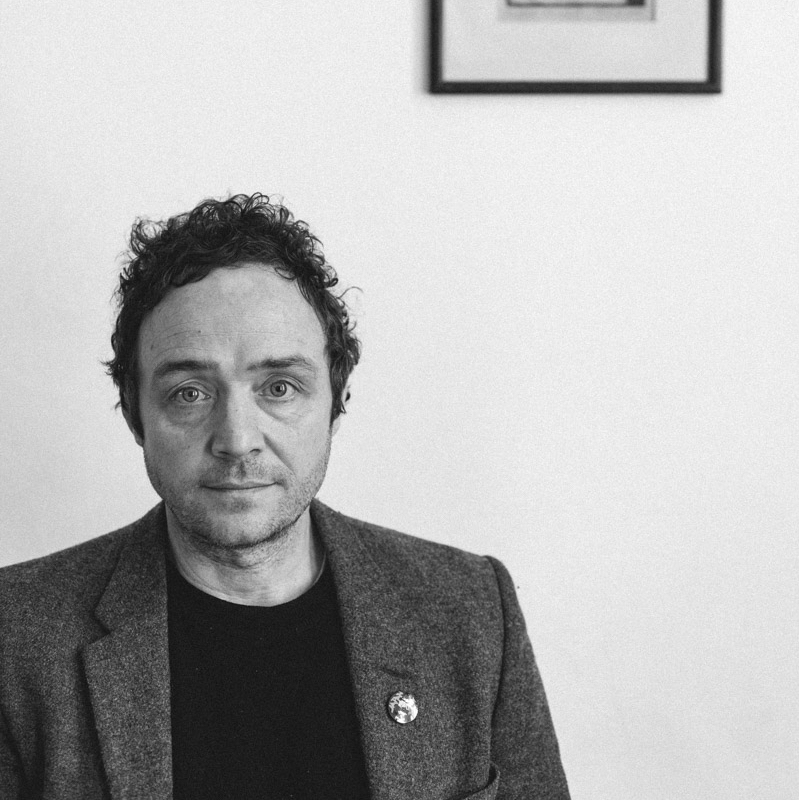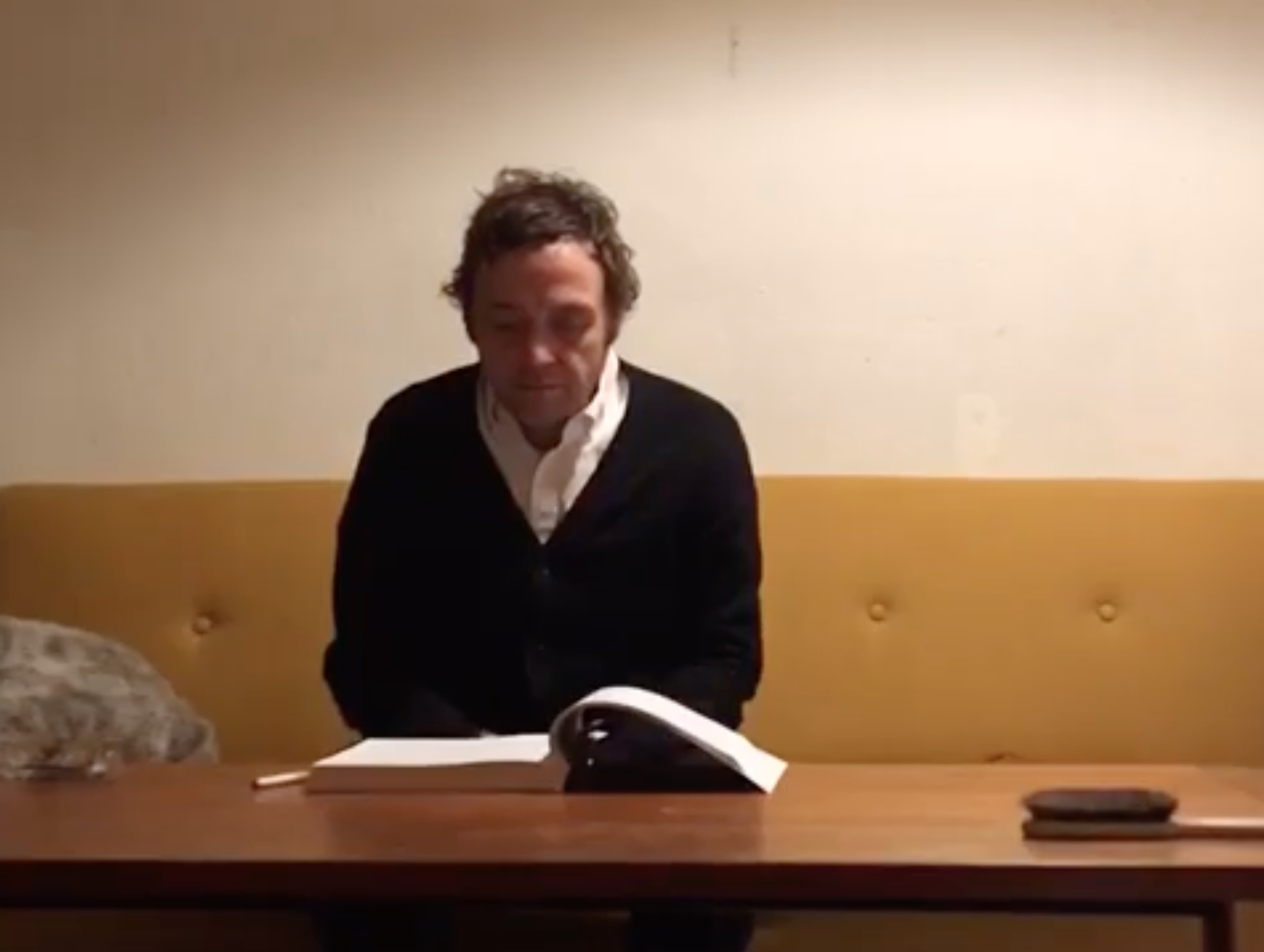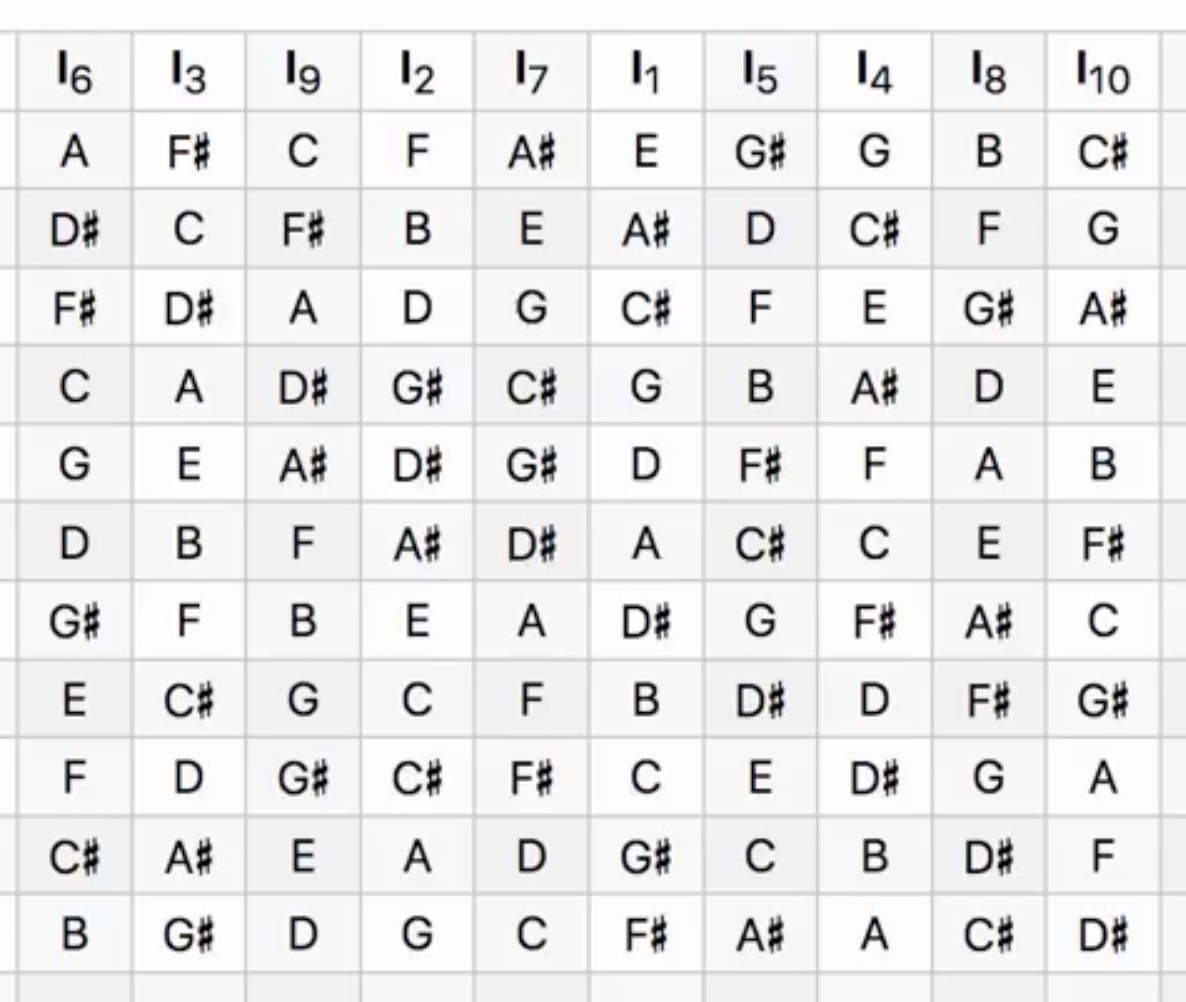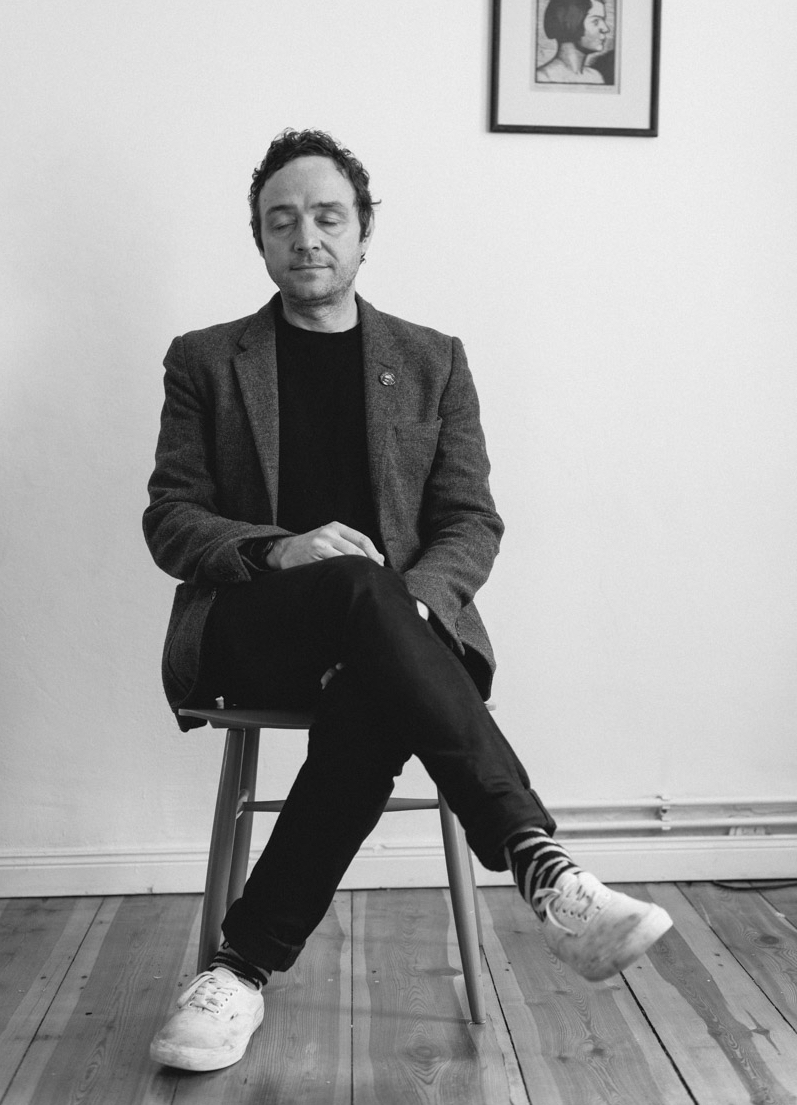
Bruno Pronsato: The Eric Dolphy Of Techno
by Dave Segal
Twenty years into his electronic-music career, Berlin-based American producer Bruno Pronsato (aka Steven Ford) remains as creatively hungry and restless as he was upon the release of his fantastic 2003 debut for Orac Records, “Read Me.” Speaking during a Zoom interview from his Berlin apartment in April, Pronsato admits that he absolutely did not imagine his namesake project would still be a vital going concern two decades later.
When asked to what he attributes his longevity, Pronsato says, “Maybe never having a hit record—and always wanting one.” Is he still striving for that hit? “I think I no longer know what a hit is,” he says.
“I used to have an idea of what a hit was and that kept the fuel going for a while, but now I'm just left to making Bruno tunes and hoping people like 'em.”
Clearly, enough people are digging what Bruno's laying down, and though he's humble enough to identify as “definitely an underground figure as a whole,” he's realistic enough to realize that he's a star in European technosphere. Such a lofty stature never could have happened had Pronsato remained in America.
Best known for his cerebral yet lubricious, off-kilter techno on a variety of elite labels, Pronsato lately has delved into hip-hop production with legendary Ultramagnetic MCs/Dr. Octagon rapper Kool Keith and rising underground MC/poet/musician Black Saturn. And perhaps most impressively, Pronsato has a new album in the can for Foom Records (Rare Normal, out this fall) that might be his best yet—and also a bold departure from the skewed dance-floor bangers that have brought him global acclaim. More on that later.
All of which very few music heads could have predicted when pondering Ford's early exploits as a drummer with Texas speed-metal/punk band Voice Of Reason. How many musicians from those genres transitioned into the experimental-techno realm? Yes, Mick Harris went from being Napalm Death's drummer to forging the infernal downtempo funk of Scorn and the ballistic drum & bass of Quoit, but other than him, it's hard to pinpoint anyone else.
So, Pronsato's been a techno outlier from the beginning. But before Bruno landed coveted Mutek festival slots in the mid '00s and launched himself into European clubland stardom, the dirty-minded, musical mischief-maker toiled in Seattle under the alias Bobby Karate.
After Voice Of Reason's split, Ford entered a phase of musical disenchantment, during which he moved to the Pacific Northwest in 1998. It was fortuitous development, as he regained his zest for creating, this time in the crowded field of computer-based music. Incorporating elements from the works of European atonalists like Anton Webern and Arnold Schoenberg, Ford instantly excelled with the 2003 microsound masterpiece, Hot Trips, Cold Returns. Under the Bobby Karate moniker, Ford finessed complexly designed glitchscapes that unpredictably whir, bleep, and spasm like the finest titles on the Mille Plateaux label.
But the Bobby Karate era was short-lived. Being Seattle’s foremost sculptor of disorienting electronic abstractions was fine and all, but it was techno that could be an ambitious American's ticket to Europe, where folks appreciated the art form with much more zeal than their US counterparts. One could see the frustration in Bruno's face as he performed his world-class music to yet another underwhelming crowd in Seattle. (true –Randy)
But before he crossed the Atlantic, Pronsato released his brilliant 2004 debut album for Orac, Silver Cities, and a slew of mind-bending EPs for prestigious imprints such as Telegraph, Musique Risquée, Philpot, and Hello? Repeat. With these releases, Pronsato established his maverick status in the highly conformist world of techno. His tunes had a weirdly human quality amid a sea of quantized, rigid templates. His percussion sounds just hit different (literally). Snares would jut out at unexpected junctures like sudden epiphanies. Kickdrums possessed a cushiony springiness.
Pronsato's many years as a rock drummer have benefited him in the techno world, and he found the ideal program to help him realize his distinctive, grid-flouting rhythms: BFD, aka Big Fucking Drums. “It's mostly made for overdubbing rock and jazz tracks, and stuff that requires acoustic drums” Pronsato explains. “It's not really in the arsenal of most electronic artists. I've transferred the drumming from all of those years to my fingers. The ladies can attest to the delicateness of the fingers.” No doubt, no doubt.
Other factors that make Pronsato's music stand out include vibes that shimmer and hover in the middle distance, imbuing tracks with cool intrigue, and vocals that typically involve cryptic mumbles rather than anthemic belting or romantic platitudes. Most unusually for a techno artist, Pronsato draws heavily from Eric Dolphy's 1964 jazz classic, Out To Lunch. The element of surprise prevails to a higher degree in Pronsato's tracks than in most of his peers'. “Surprise has always been one of the key things for me,” he says. “One of the most surprising records I've ever listened to and remains surprising on each listen is Out To Lunch. I've always been obsessed with that record and trying to duplicate it in my form of music—particularly with regard to percussion. Tony Williams' percussion on that record is just beyond reproach and next level. The fact that he was just 17 and had already reached this perfection, this rhythmic otherworldliness...”
In addition, those sublime, Bobby Hutcherson-esque vibraphone timbres really distinguish Bruno's music from other techno producers'. I wonder if he has the actual instrument in his studio, or just a convincing facsimile of one? “I'm just using several good facsimiles. I can't get away from vibes, or those sorts of tonal percussions. There's something naturally dark about them. Yet one can coax some serious beauty out of them.”
While his catalog abounds with crucial techno releases—both solo and with numerous collaborators, including Sammy Dee in the duo Half Hawaii—Bruno cannot exist on that genre alone. Sometimes there must be tangents, and that's where Archangel, L.A. Teen, Kool Keith, and Black Saturn fit in. The Archangel project arose out of a frenzied period during which Pronsato consumed loads of post-punk albums. “I was playing my normal Bruno shows, but my passion was to create something between Japan and, I don't know, Suicide. I thought I could bring all of these elements together. It was a lot of fun, working with Yonatan Levi and Peter Gordon. It was definitely a departure and one that I hope to revisit. But next time I'd want it to be more on the straight-up post-punk edge rather than this prominent Bruno in the front and these tiny crumbs of post-punk in the back. I did a lot of the vocals on it. It was a big step up to writing lyrics and doing vocals and writing music with a bass player. It was a super-fun time, but I don't think anyone knows it.”
Although the Archangel material went relatively unnoticed, Pronsato stands by it, as well as the under-the-radar L.A. Teen record (2018's A Face Wasted On The Theatre), “which is sort of the culmination of what I wanted [my post-punk-inspired music] all to sound like.”
Speaking of tangents, it's very rare for a techno producer to enter the world of hip-hop production. I'm struggling to think of any prominent examples. Madteo, maybe? Pronsato has loved hip-hop from an early age, and this writer can attest to his love of Kool Keith's Sex Style LP, every element of which seems to be indelibly stamped on his DNA.
“I've always admired hip-hop production, but I'm not really as knowledgeable as 95 percent of my friends are about hip-hop. The reason I did the record with Kool Keith because I just wanted to work with him. He's an incredible person and incredible lyricist. And I really love Kut Masta Kurt's production. It's really dark, really heavy on snares, big on bass lines. That's always been my MO as a techno producer. Observing the work of Kut Masta Kurt, it seemed like a fun step.”
This dream collab, Pronsato explains, “sort of came out of a drunken moment [in 2020] where I just happened to write to Keith and sent him some sketches that I'd done. Then it was off to the races. I proposed the idea to Logistic Records and they were very keen to do it. It just came together. Then out of that I started working with Black Saturn.”
The resultant Keith's Salon finds the rapper as XXX-rated and funny as ever, formulating absurd scenarios, doling out twisted rhymes with nonchalantly authoritative flows while Pronsato and Benjamin Jay—under the handle Triple Parked—lay down eccentrically funky and spare foundations. It'll sound amazing in your whip... or in your 'phones. Check out “Extravagance” and “Bright Eyes” for the zenith of this cross-continental hip-hop gem, which is optimally experienced in a penthouse jacuzzi.
Was Keith surprised or suspicious when you first contacted him about this? It's unlikely that he receives a lot of cold calls from people in the European techno scene. “I think he was a little surprised. Keith and I had a really long conversation. I'd sent him loops to check out and see if that was even a direction he wanted to go. The great thing was, Keith asked what my history and background was and we started talking about electronic music in Berlin. Believe it or not, Keith has this real connection to Kraftwerk. He was blown away by their live show. In his mind, even though I'm an American electronic artist in Berlin, I was sort of an extension of Kraftwerk—to my benefit.
“They say don't ever meet your heroes, but it wasn't like that with Keith. He was twice as nice, twice as humble. The funny thing about hip-hop is, those MC cats go off on each other on their tracks. But in real life, they're absolutely nothing like the foul-mouthed, confrontational person that they seem to be in their [verses]. I mean, Keith's a fucking weirdo, straight up, but he's amazing.”
Because of COVID, the duo couldn't record and mix the record together, but Pronsato did mix Keith's Salon in Willie Nelson's Arlyn Studios in Austin. “It was this weird combination. I was working with this engineer, Joseph Holguin. He's mixed like 15 Willie Nelson albums, and you have Keith being a foul-mouth going over the monitors,” he says, laughing.
Following the Kool Keith experience, Pronsato's mind was ablaze with hip-hop production ideas. He next linked up with Washington DC rapper/poet/musician Black Saturn, crafting four demo tracks over the last couple of years, for which he's currently searching for a label. “I like Saturn a lot because not only is he an incredible MC, he's also an experimental musician, he's a poet, a polymath.”
Recorded at Sear Sound in NYC, the demo bears the bass-heavy, sinister vibe of Brooklyn's WordSound roster at its darkest and smartest. Bruno paints eerie, subliminally funky backdrops over which Saturn spits lyrics with the piquant, streetwise heft of Antipop Consortium and Dälek. “I'm trying to hone my hip-hop chops,” Pronsato says. “I don't at all consider myself a hip-hop producer, because it's still kind of early in the game for me.” Nevertheless, he's off to an auspicious start in this realm.
As exciting as it is to see Pronsato extend his talents to the hip-hop world, it's his forthcoming full-length under his most familiar handle that should really flip wigs. Rare Normal is a new direction for Bruno; it's perhaps his least dance-oriented release. “Above The Launderette” places vibraphone, bass, and snare in a sparse, ominous atmosphere, not unlike Mica Levi's Under The Skin soundtrack, but it's more sensual and rhythmically robust. “Perfume Saint” is as stripped down and weirdly angled as Italian art-rock unit Starfucker's Sinistri. On “Like Hannah,” Pronsato plays (or samples) acoustic guitar with a downcast languor that makes Jandek sound hopeful. “Cops Are Weird” is simply a cool plunge into minimalist oddity and masterly tonal feng shui. “Statues Disfigured” is one of Pronsato's strangest tracks; it sounds as if it's recorded at the bottom of a dank well, but its ticking beats, bass smudges, and disorienting vibraphone smears generate a subtly menacing mood. Elsewhere, Pronsato veers into interiorized, cubist funk reminiscent of Frank Bretschneider's Komet. Throughout, Bruno proves himself a master of low-key tension and mystery. What prompted this shift in approach?
“So much of my music has been buried in sound design and not so much in note-oriented pieces of music. I wanted to be more exposed.”
“I wanted to take a little back from the sound design and work more with notes. I spent a lot of time with a teacher studying 12-tone composition around the same time and I was listening to tons of Charles Ives. I got really inspired by this classical sound, but I wanted to bring my very dumbed-down version of what I imagined it would be in the Bruno Pronsato world. It's the 'naked walk in the park' version.”
With streaming royalties and record sales solid but insufficiently lucrative, Pronsato relies on live performances to make his living, but he's had to scale back there to help raise his two children. Consequently, he's been doing more mastering work and lecturing at some cultural centers. He also hopes to secure a music-production teaching gig at “an unnamed school of esteem” in Germany this summer. And he's enjoyed a rewarding side hustle as personal music coach for Mexican artist Ricardo Mondragon, who turns sound waves into sculptures.
As for the rest of 2023, a couple of labels have pressed Pronsato for EPs. As he ponders those offers and contemplates a possible EP with Markus Nikolai called Duets, in which he sings with other real singers, he plans to chill for a bit. “Because after [Rare Normal] comes out, I think it's going to be a shock to some people. I'll have some 'regular' Bruno material out for people, so I don't scare away the crowd too much.”
Legend!
Big huge inspiration
Maestro!


